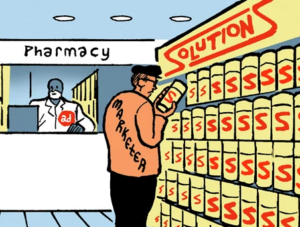The convergence of on-site retail and shopping across the web got a little more converged on Tuesday with the news that Kevel has acquired Nexta.
Terms of the deal were not disclosed. Nexta, a Copenhagen-based startup, brings 30 to 40 new employees to Kevel.
Kevel, the one-time Adzerk ad server, refocused as an on-site retail media vendor in 2020. It was a fortuitous move, as the retail media craze took off and the independent ad server market cratered. Last year, Kevel founder and CEO James Avery testified during the DOJ vs. Google antitrust trial that Adzerk’s business model proved futile allegedly because Google’s advertising demand was exclusive to its ad server.
Getting off-site
But Kevel was missing an important component of the modern retail media stack: off-site platform integrations.
With the integration of Nexta – which should be complete by the middle of this year – Kevel will be able to extend its on-site retail media campaigns to Nexta’s off-site retail platforms, including TikTok and Meta, said Kevel Founder and CEO James Avery.
“It’s about giving the retailer that single interface, like a Walmart or an Amazon, where you can come in and buy across the web and YouTube, TikTok, Facebook and all these different places that Nexta connects with,” he said.
Ad tech chops
Both companies have expertise with open web ad tech. Kevel’s background is as a display ad server, and Nexta’s founder started the company seven years ago after working at Adform as VP of publisher platforms.
That programmatic experience will come in handy as retail media develops standards and extends beyond basic on-site sponsored product ads. Kevel keeps its finger on the pulse of programmatic retail as a participant in the W3C as it works on probabilistic attribution standards, Avery said. Kevel is also involved with the IAB Tech Lab’s retail media standards development efforts.
One of the reasons retail media has grown so quickly, according to Avery, is that probabilistic attribution is becoming the norm across the web as consistent third-party cookies and other advertising or device IDs become scarce.
But retailers still possess great troves of first-party data on their shoppers and site visitors.
It was Kevel and Nexta’s knowledge of how ad tech works that inspired both companies to leave the open web.
Retailers and ecommerce marketplace operators might use a DSP like The Trade Desk for on-site activations and to extend to the open web, Avery said. But TTD is a log file specialist. It doesn’t extend to the walled garden platforms like Meta, Amazon and TikTok.
But for retailers, especially in smaller markets, the more compelling off-site opportunity is “to access the walled gardens, where there’s way better matching than the open web,” he said.
It’s far more valuable for a retailer to match its customer list to a platform, with better and more consistent match rates, Avery said, than to scour the open web and hope that identity graphs can potentially cobble together deterministic matches.
The probabilistic matching products on the open and those that are being developed in venues like the W3C and IAB Tech Lab are promising, Avery said.
“But nothing beats when you send somebody to a website and [see] them clicking through and buying the product or making the purchase in person,” he said.













